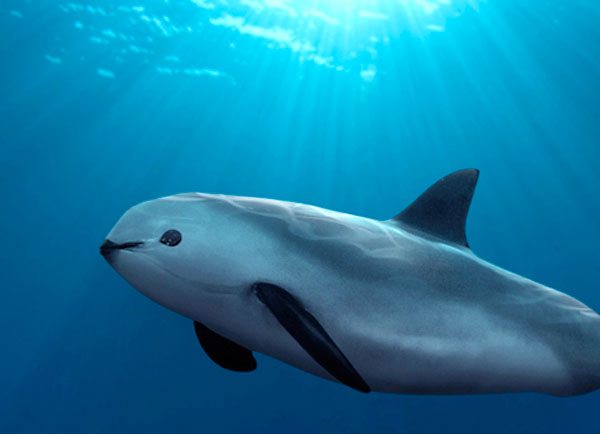The Mexican government said on Saturday, Feb. 27th, it is considering reducing the protection area for the vaquita marina in the upper Gulf of California, an apparent admission that the tiny porpoise may never return to the entire historic range of its habitat.
The move would cut the area where gill nets are banned to protect the world’s most endangered marine mammal and smallest porpoise. As few as 10 vaquitas may remain in the Gulf, also known as the Sea of Cortez, the only place in the world where the elusive porpoise lives.
Mexico’s Environment Department said Saturday that the drop in the number of vaquitas and the area where they have been seen in recent years justifies reducing the protection zone, which currently covers most of the upper Gulf. The zone starts around the Colorado River delta and extends south past the fishing town of San Felipe and near Puerto Peñasco.
“The possibility is being studied of modifying the area of gill net bans,” the department said in a statement. “There have been enough technical studies to indicate a possible reduction in the zone, according to the recent distribution of the vaquita marina in the area.”
It said the change would be submitted for discussion by a group including fishermen, the public and authorities, and said formal proposals could be presented until March 26.
The net ban has angered fishermen, who frequently set illegal nets to catch totoaba, another endangered species. Vaquitas often get caught in nets set for totoaba, whose swim bladder is considered a delicacy in China and commands prices of thousands of dollars per kilogram.
The fishermen have staged angry protests and have attacked boats from the environmentalist group Sea Shepherd, which removes illegal nets in the smaller area where vaquitas have been sighted in recent years.
Alex Olivera, the Mexico representative for the Center for Biological Diversity, said the reduction could affect the admittedly small population of vaquitas still remaining.
“Reducing the zone also means cutting the area available to the vaquita marina, and of course this species doesn’t live in a coral, it lives in the marine environment so that as soon as it leaves the zone, it could face gill nets, which are a threat,” said Olivera.



